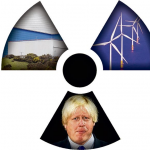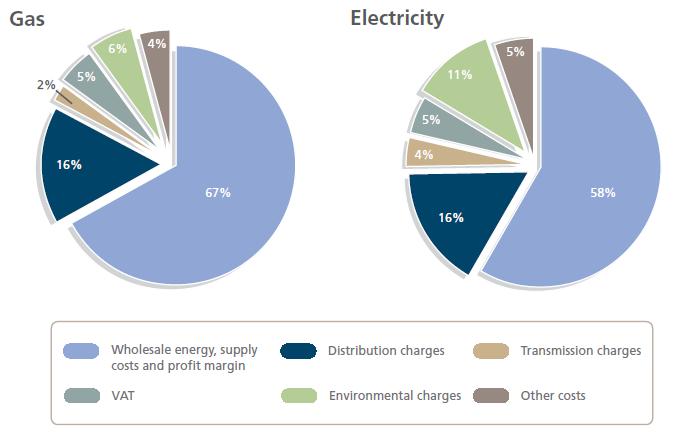Site search:
-
What’s new?
Energy for London Tags
Brent Buildings Camden Carbon Emissions CHP Cities Climate Adaptation Community Heating Community Initiatives Croydon Data DECC Decentralised Energy Distribution ECO Energy Costs Energy Efficiency Enfield FIT Fuel Poverty Funding Green Deal Hackney Haringey Housing Islington Lambeth Library Local Authorities Mayor Newham Ofgem Olympics Photovoltaics Planning RE:FIT RE:NEW Renewable Energy Retrofit Southwark Tower Hamlets Transport Waltham Forest Waste WestminsterEnergy Archives:
- February 2021 (1)
- January 2021 (15)
- December 2020 (15)
- November 2020 (9)
- October 2020 (3)
- August 2020 (5)
- July 2020 (3)
- June 2020 (4)
- April 2020 (10)
- March 2020 (5)
- February 2020 (2)
- January 2020 (3)
- October 2019 (1)
- September 2019 (4)
- August 2019 (2)
- July 2019 (1)
- August 2018 (1)
- November 2016 (8)
- October 2016 (8)
- September 2016 (2)
- August 2016 (8)
- July 2016 (14)
- April 2016 (12)
- March 2016 (16)
- February 2016 (8)
- January 2016 (4)
- December 2015 (1)
- November 2015 (1)
- October 2015 (16)
- September 2015 (3)
- June 2015 (1)
- May 2015 (1)
- April 2015 (1)
- March 2015 (1)
- February 2015 (1)
- January 2015 (1)
- December 2014 (18)
- November 2014 (4)
- August 2014 (8)
- July 2014 (7)
- June 2014 (25)
- May 2014 (8)
- April 2014 (4)
- March 2014 (12)
- February 2014 (7)
- January 2014 (13)
- December 2013 (11)
- November 2013 (15)
- October 2013 (15)
- September 2013 (18)
- August 2013 (5)
- July 2013 (20)
- June 2013 (33)
- May 2013 (8)
- April 2013 (16)
- March 2013 (25)
- February 2013 (14)
- January 2013 (20)
- December 2012 (23)
- November 2012 (23)
- October 2012 (25)
- September 2012 (14)
- July 2012 (12)
- June 2012 (43)
- May 2012 (20)
- April 2012 (8)
- March 2012 (40)
- February 2012 (39)
- January 2012 (40)
- December 2011 (22)
- November 2011 (40)
- October 2011 (33)
- September 2011 (48)
- August 2011 (40)
- July 2011 (58)
- June 2011 (41)
- May 2011 (80)
- April 2011 (38)
- March 2011 (33)
- February 2011 (25)
- January 2011 (24)
- December 2010 (3)
- November 2010 (7)
- October 2010 (6)
- September 2010 (7)
- August 2010 (1)
- July 2010 (2)
- June 2010 (4)
- May 2010 (1)
- March 2010 (3)
- February 2010 (3)
- December 2009 (5)
- November 2009 (2)
- October 2009 (3)
- July 2009 (3)
- June 2009 (1)
- April 2009 (1)
- March 2009 (1)
- February 2009 (1)
- January 2009 (1)
- December 2008 (2)
- October 2008 (1)
- September 2008 (1)
- July 2008 (1)
- March 2008 (2)
- January 2008 (2)
- October 2007 (1)
- September 2007 (3)
- July 2007 (1)
- March 2007 (1)
- February 2007 (3)
- November 2006 (3)
- August 2006 (1)
- February 2006 (1)
- May 2005 (1)
- February 2004 (1)
Tag Archives: Natural Gas
Everything you wanted to ask about fracking in London…
December 2014: Fracking of shale gas has been added to the mix of energy issues that have dominated headlines over the past year. A surprising element to the debate however has been the potential for fracking gas in London.
Things were kick started by the Mayor back in 2013 (2 July) with a letter to the Times, raising concerns about how London might be facing future powe blackouts, where he also added “if reserves of shale can be exploited in London we should leave no stone unturned, or unfracked, in the cause of keeping the lights on” (Times letter – behind paywall – here; letter also covered in following Guardian article). The Mayor similarly supported the wider use of fracking in an article in The Sun in September 2013. Continue reading…
The Future of Battersea’s disused gas holders
December 2013: National Grid news release announcing that “Work to dismantle the gas holders at National Grid’s site in Battersea got under way recently and the local community are being invited to find out how this and future work will play a part in the exciting redevelopment plans for the area.
“The site was once used to produce town gas which was made from coal. However after the discovery of natural gas under the North Sea town gas became obsolete and the gasworks closed. The gasholders however continued to be used for gas storage but now improvements to the gas network and storage methods mean that they are no longer needed. Their removal will help transform the area enabling the site to be redeveloped and much needed housing to be built.”
Some fascinating historical background to the site can be found at www.BatterseaGasholders.com. And here’s a great drawing of one of the Battersea gasometers – part of a series of drawings of London gasometers – by artist Daniel Preece.
Energy and Climate Questions to the Mayor
September 2013: This month the Mayor has been asked questions in relation to:
How the Mayor’s programmes will respond to the forthcoming IPCC’s (Intergovernmental Panel on Climate Change) 5th Assessment Report; the Mayor’s “climate sceptic views“; London’s growing energy demand; £145k spend on climate change adaptation; the amount of energy generated from waste incineration; the number of GLA officers working on energy efficiency retrofit; the amount of ECO funding that could be directed to London; the operation of the RE:FIT schools energy efficiency programme in Harrow; the RE:FIT schools programme in Brent; Government’s proposed changes to building regulations and its potential impact on London Plan energy requirements; the Mayor’s response to DECC’s Community Energy – Call for Evidence; the Mayor’s support for community energy schemes in London – such as Brixton Energy; publication of the latest London Energy and Greenhouse Gas Inventory (LEGGI); the cost of producing ‘Using Local Powers to Maximise Energy Efficiency Retrofit – How to’ materials for London’? (report here); the terms of loans provided by the London Energy Efficiency Fund (LEEF); extending LEEF loans to the private sector; details of the LEEF Advisory Committee; consultancy companies working on LEEF; the amount spent by LEEF; the number of loans given out by LEEF; rollover energy contracts for SMEs; Londoners energy bills; the amount of renewable electricity provided by Source London electric vehicle charging points; funds previously spent on adding energy efficiency measures to Metropolitan Police buildings currently for sale; developing a Fuel Poverty Action Plan for London; the supply of electricity to London’s electric vehicle charging points; the supply of electricity to London Underground; London Green Deal targets; a London Green Roofs map; the Mayor’s Green Deal assessment on his home; stimulating Green Deal finance packages; spend of the Green Bus Fund; funding received from the Green Bus Fund; identifying brownfield land in London suitable for sustainable energy projects; CO2 savings achieved by the Mayor’s climate change programmes; potential for the London Pension Fund Authority to invest in low carbon energy projects; when the next update to the Mayor’s Climate Change Adaptation Strategy is to be published; how climate change will affect London’s summer temperatures; new anaerobic digestion plant in Surrey; the level of waste being directed to the Beddington incinerator; the London Plan’s policies on incineration; the Mayor’s approval of the Beddington incinerator; if the Mayor had pressed for the Beddington project to develop as a anaerobic digestion plant; if the Beddington incinerator can operate in combined heat and power (CHP) mode; heat network around the Beddington incinerator; the growth of waste incineration in London to 2016; the role for future incineration in London; local planning controls and fracking; the fracking potential in London; details of the new RE:NEW domestic energy efficiency programme; targets for the new RE:NEW programme; the choice of the Capita Group to manage the new RE:NEW programme; GLA buildings that have been treated by the RE:FIT programme; whether the Mayor’s Environment advisor had visited the Kings Cross CHP and district heating scheme.
Previous months questions to the Mayor can be found here.
Posted in Decentralised Energy, Energy Efficiency, News, Renewable Energy
Tagged Anaerobic Digestion, Brent, Buildings, Carbon Emissions, CHP, Climate Adaptation, Community Initiatives, Energy Security, Funding, Green Deal, Harrow, Lambeth, London Green Fund, Natural Gas, Planning, RE:FIT, RE:NEW, Retrofit, Schools, Transport, Waste
Leave a comment
Boris sets out his support for both nuclear & fracking
 15 September 2013: The Mayor has decided to set forth his views on UK energy policy in the national press once again. After writing to The Times back in July (see below), Boris has now penned a piece for The Sun (behind paywall…but fortunately reported elsewhere), where he states that: “the country needs to ‘grow some collective cojones and launch the nuclear energy programme that this country has too long delayed… Next, we must stop pussy-footing around, and get fracking. Even if we have 100s of fracking pads, they are nothing like as ugly as windmills, and they can be dismantled as soon as the gas is extracted.”
15 September 2013: The Mayor has decided to set forth his views on UK energy policy in the national press once again. After writing to The Times back in July (see below), Boris has now penned a piece for The Sun (behind paywall…but fortunately reported elsewhere), where he states that: “the country needs to ‘grow some collective cojones and launch the nuclear energy programme that this country has too long delayed… Next, we must stop pussy-footing around, and get fracking. Even if we have 100s of fracking pads, they are nothing like as ugly as windmills, and they can be dismantled as soon as the gas is extracted.”
The Mayor continues in a similar vein in the article (also reported here ‘Boris on our ‘pathetic apology’ for an energy policy‘) railing against wind turbines – echoing views from a radio interview he undertook on LBC earlier this year (Wind farms couldn’t pull the skin off a rice pudding, says Boris Johnson).
Boris has previously used his weekly Daily Telegraph column to champion gas fracking (Ignore the doom merchants, Britain should get fracking) and much of the commentary for The Sun article was previously set out in a letter the Mayor sent to the The Times a few months ago:
” Sir, Many people have not yet woken up to the reality that the population of London is now growing faster than any city in Europe. As I make clear in our 2020 Vision, this demographic explosion is placing huge demands on our infrastructure — including power generation. It is a tragic comment on Labour’s failure to plan ahead that in only two years our electricity capacity headroom (the difference between demand and supply) will be down to 2 per cent. We will have to ask some of our more energy-intensive industries not to operate at peak times, the kind of policy we last saw in the 1970s. It is time for maximum boldness in energy supply. I fully support the Government’s drive for nuclear power, and if reserves of shale can be exploited in London we should leave no stone unturned, or unfracked, in the cause of keeping the lights on.
Boris Johnson Mayor of London” July 2 2013
That letter was a response to energy regulator Ofgem’s capacity report which set out that “electricity supplies are set to tighten faster than previously expected in the middle of this decade”. Energy security appears to have become a greater concern to the Mayor since raised by London businesses, and has led to the establishment of a London ‘High Level Electricity Working Group‘ coordinated by the GLA.
Whilst security of energy supply issues are a real concern, the Mayor’s choice of solutions are of no real help at all. Nuclear negotiations have stalled over the past year, and even if agreement were reached today, the first power produced by a new nuclear plant is the best part of a decade away – well after the 2015 capacity concerns. Discussions around shale gas have become increasingly polarised: whatever the final outcome, it is unlikely that fracked gas will have any significant role to play in the nation’s energy mix for some time.
Posted in News, Renewable Energy
Tagged Energy Security, Mayor, Natural Gas, Ofgem, Renewable Energy, Wind
Leave a comment
Camden Applies for Gas Supply License
4 June 2013: Camden has applied to energy regulator Ofgem for a gas supplier licence. Camden’s application to Ofgem highlights an extensive property list in the borough that the council has management responsibility for- all of which requires gas supply. The council’s budget code book points to a total spend for the borough’s gas supply of over £12m in 2013/14. The council’s current central purchasing body for gas supply is a company called Laser – this is an energy-buying group providing energy procurement and contract support for 106 local authorities – including many of London’s councils. Laser is a commercial service provided (and established) by Kent County Council.
It’s likely that with this application to Ofgem, Camden is looking for new options with regard to the gas supply to its residents – with an eye on opportunities on how energy cost savings can be made and passed through.
Household energy bills explained
18 January 2013: Ofgem have updated their useful factsheet on what makes up household energy tariffs (download here).
- It reflects gas and electricity prices in December 2012
- The average gas bill for a standard account is £811 and for electricity it is £531
- The average bills above are based on average annual consumption figures of 3,300 kWh for electricity and 16,500 kWh for gas
- Environmental costs amount to 6% of gas bills and 11% of electricity bills – and currently amount to around £82 on a total energy (gas & electricity) annual bill.
Other references that go into this household energy bills in more detail are:
- DECC’s Quarterly Energy Prices
- Energy UK’s Energy supply margins reports undertaken by NERA
‘How Green Will the New Heygate Be?’
December 2012: 35percent.org is an useful blog focussed on sustainability issues related to the massive new development proposed at the Elephant and Castle (see earlier post on this).
The top link to the site sets out some current concerns over the energy proposals on the site, especially in relation to connecting the different energy centres on site (which would hep form a more efficient area-wide heat network), and also the likelihood of using biomethane gas (the proposal in the developers application is to use the Green Gas Certification Scheme to link the London scheme to a site which is injecting biomethane elsewhere in the national gas transmission grid). The blog entry states that no such injection schemes are currently operating, which was true at the time of writing (early November 2012) but, coincidentally, the Poundbury anaerobic digestion (AD) in Dorset began operation just over a week ago (see here and here) and is injecting renewable gas generated from the AD into the gas grid.
Posted in Decentralised Energy, News
Tagged Decentralised Energy, Natural Gas, Planning, Southwark
Leave a comment
Planning and London’s energy infrastructure
March 2012: The GLA have just issued for consultation the London Plan Implementation Plan which appears to be a new initiative seeking to “set out how the policies of the London Plan will be translated into practical action.” The effectiveness of the London Plan’s climate and energy policies are reviewed in regular monitoring reports, the latest of which was published in January 2012. This report contains a specific section (page 34 onwards) considering some key challenges of London’s energy infrastructure, with a focus on London’s gas and electricity distribution networks, over the coming years and the role that decentralised energy has to play.
Carbon emission factors from the UK Greenhouse Gas Inventory
May 2011: DECC published data which, if you really want to get into the detail, on the ‘Regional Gas Data‘ tab on this spreadsheet, provides a specific ‘Carbon dioxide emission factor for natural gas‘ for London (or ‘North Thames’ as gas companies like to regionally identify London).



